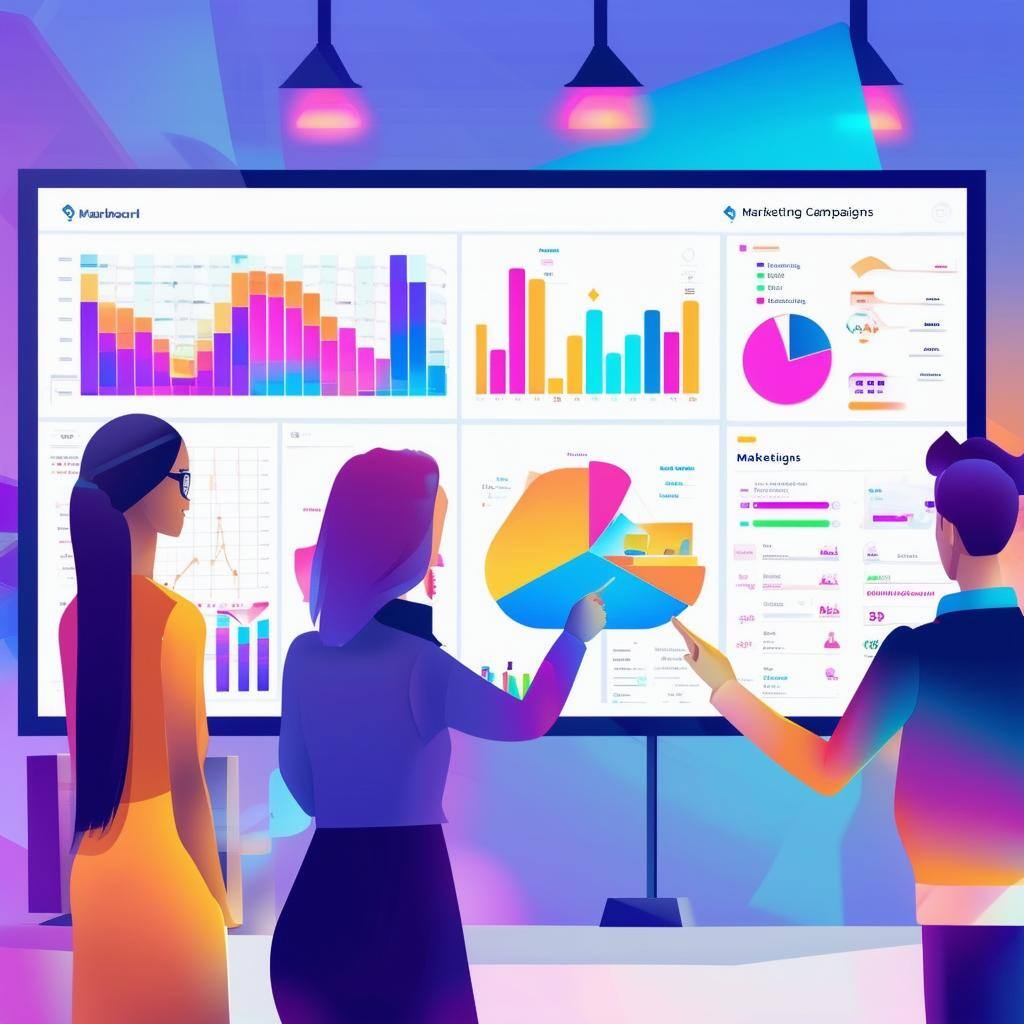AI for Marketing: Drive Growth with Data-Driven Campaigns
In the ever-evolving world of marketing, staying ahead of the curve is imperative for growth and success. One of the most promising developments in recent years has been the integration of artificial intelligence (AI) into marketing strategies. While it might sound like the realm of science fiction, AI-driven marketing is very much a reality and is rapidly transforming how businesses connect with their audiences. In this blog post, we'll delve into how AI can optimize marketing campaigns, enhance targeting, and accurately measure performance, offering a tantalizing glimpse into its potential to drive growth.
Optimizing Marketing Campaigns with AI
At the heart of any successful marketing strategy is a well-optimized campaign. AI technology is making it easier than ever to refine these campaigns, ensuring they reach their full potential. With AI tools, marketers can analyze vast amounts of data at lightning speed, identifying trends and patterns that would be impossible for humans to detect on their own. This insight allows brands to fine-tune their messages for optimal impact, saving both time and resources.
AI tools like Albert and Adext are leading the charge, offering automated solutions that continuously adjust and optimize campaigns in real-time. These platforms can experiment with various ad placements, formats, and audiences, learning from each interaction and refining strategies accordingly. The result? Enhanced performance and a higher return on marketing investment.
Improving Targeting
One of the standout capabilities of AI in marketing is its ability to vastly improve targeting. Gone are the days of broad, uncertain audience targeting. AI harnesses the power of machine learning algorithms to sift through data and deliver personalized messaging to specific segments of your audience. This precision ensures that advertisements and marketing efforts are not only seen but also resonate with the intended recipients.
Platforms like IBM Watson Marketing and Google Ad Manager are at the forefront of this revolution, leveraging AI to predict consumer behavior and tailor experiences that engage and convert. By understanding user preferences, past interactions, and even real-time data, these tools enable marketers to deliver the right message at the right time, effectively cutting through the noise and capturing attention.
Measuring Performance with Precision
Accurate measurement of performance is a cornerstone of successful marketing campaigns. AI provides marketers with the tools to evaluate campaign effectiveness with unprecedented accuracy. By analyzing data from various sources, AI systems can provide insights into what works and what doesn't, helping marketers to make informed decisions about future strategies.
AI-powered analytics platforms like Salesforce Einstein and Adobe Analytics offer comprehensive dashboards that compile data in a meaningful way. Marketers can track key performance indicators (KPIs), assess the impact of different marketing initiatives, and adjust strategies accordingly. This level of insight not only helps in understanding past performance but also aids in predicting future trends and outcomes.
Success Stories: AI in Action
The proof, as they say, is in the pudding. Numerous companies have already harnessed the power of AI to transform their marketing efforts and achieve remarkable results. Consider the case of Coca-Cola, which utilized AI to analyze social media data and uncover insights that drove a successful personalized marketing campaign. Or Netflix, which employs AI algorithms to recommend content, increasing viewer engagement and retention.
These success stories underscore AI's potential in the marketing industry. By leveraging AI's capabilities, businesses can create more effective, personalized, and efficient marketing campaigns that resonate with their target audiences.
Actionable Steps for Implementing AI in Marketing
For businesses eager to harness the power of AI, the path forward is both exciting and accessible. Here are some actionable steps to get started:
-
Identify Your Needs: Understand the specific areas within your marketing strategy that could benefit from AI, whether it's optimization, targeting, or performance measurement.
-
Evaluate Tools: Research and select AI tools that align with your marketing objectives. Consider factors like ease of integration, scalability, and cost.
-
Start Small: Begin by implementing AI in one aspect of your marketing strategy. This allows you to test the waters and understand its impact without overwhelming your resources.
-
Monitor and Adjust: Use AI analytics to track performance and make data-driven decisions. Be prepared to tweak and adapt your strategies based on the insights received.
-
Stay Informed: The world of AI is continuously evolving. Keep abreast of the latest developments and adjust your strategies to leverage new technologies and innovations.
In conclusion, AI for marketing is not just a passing trend—it's a powerful tool that can drive growth and innovation. By optimizing campaigns, improving targeting, and measuring performance with precision, businesses have the opportunity to engage audiences like never before. Whether you're a small business or a multinational corporation, AI offers intriguing possibilities to elevate your marketing strategy and achieve remarkable outcomes. So, why not take the plunge and explore the potential of AI-driven marketing today?
-1.jpg?width=160&height=75&name=2%20(3)-1.jpg)


